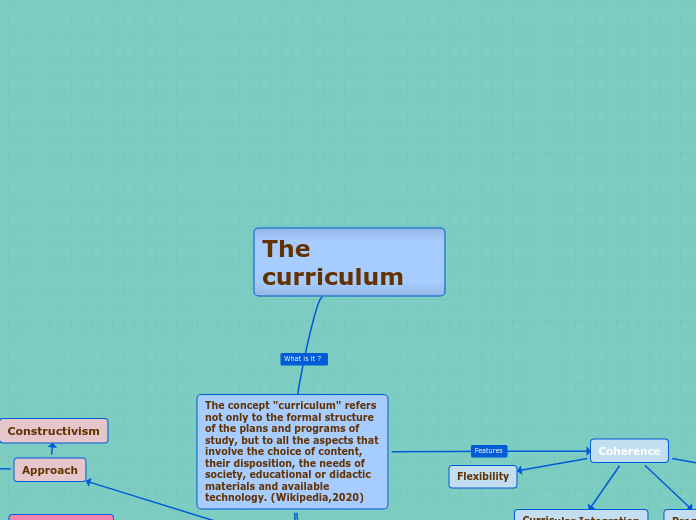The curriculum
The concept "curriculum" refers not only to the formal structure of the plans and programs of study, but to all the aspects that involve the choice of content, their disposition, the needs of society, educational or didactic materials and available technology. (Wikipedia,2020)
General Basic Middle Education
General Basic Higher Education
Approach
Constructivism
Main goals
8 EGB
Obtain A1.1 level in the English language
9 EGB
Obtain A1.2 level in the English language
10 EGB
Obtain A2.2 level in the English language
Approach
Constructivism
Main goals
5 EGB
Obtain A1.2 level in the English language
6 EGB
Obtain A2.1 level in the English language
7 EGB
Obtain A2.2 level in the English language
Examples of Coding for planing
Elementary Basic General Education
O.EFL 2.1
Identify some main ideas and details of written texts, in order to
develop an approach of critical inquiry to written and oral texts.
O.EFL 2.2
Assess and appreciate English as an international language, as
well as the five aspects of English that contribute to communicative competence.
General Basic Middle Education
O.EFL 3.1
Identify the main ideas and some details of written and oral texts,
in order to interact with and to develop an approach of critical
inquiry to a variety of texts.
O.EFL 3.2
Assess and appreciate English as an international language, as
well as the skills and subskills that contribute to communicative
and pragmatic competence.
General Basic Higher Education
O.EFL 4.1
Identify the main ideas, some details and inferences of written
texts, in order to produce level-appropriate critical analysis of
familiar subjects and contexts.
O.EFL 4.2
Appreciate and value English as an international language and a
medium to interact globally.
Elementary Basic General Education
Approach
Constructivism
Main goals
2 EGB
Obtain PRE A1.1 level in the English language
3 EGB
Obtain PRE A1.2 level in the English language
4 EGB
Obtain A1.1 level in the English language
Coherence
Flexibility
Curricular Integration
Progression
Communicability
Global Engagement
To develop learners’ understanding and of other cultures to communicate
through English
Epistemological Foundations and Pedagogical responses
EFL curriculum
To how learners learn
languages and therefore, how they should be taught
all learners entering schools are users of their mother tongue
Cognitive
Emotional
that facilitate communication, and have an understanding of how their L1.
Motor skills
Curricular Threads
Communication and Cultural Awareness
Social Competence and Values
Intercultural Awareness
and Identity
Intercultural Awareness
and Identity
Oral communication
Listen and speaking
Listening Skills
Spoken Production
Spoken Interaction
Reading
Literacy-rich Environment
Use of Resources & Study Skills
Reading Comprehension
Writting
Initial Literacy
Text Production
21st Century skills developed through learning English
Social and Thinking skills
Develop intellectual skills needed to achieve
their potential to participate productivity in an increasingly globalized world
Foundation for lifelong learning
Motivation to continue learning
English through EGB and BGU,
